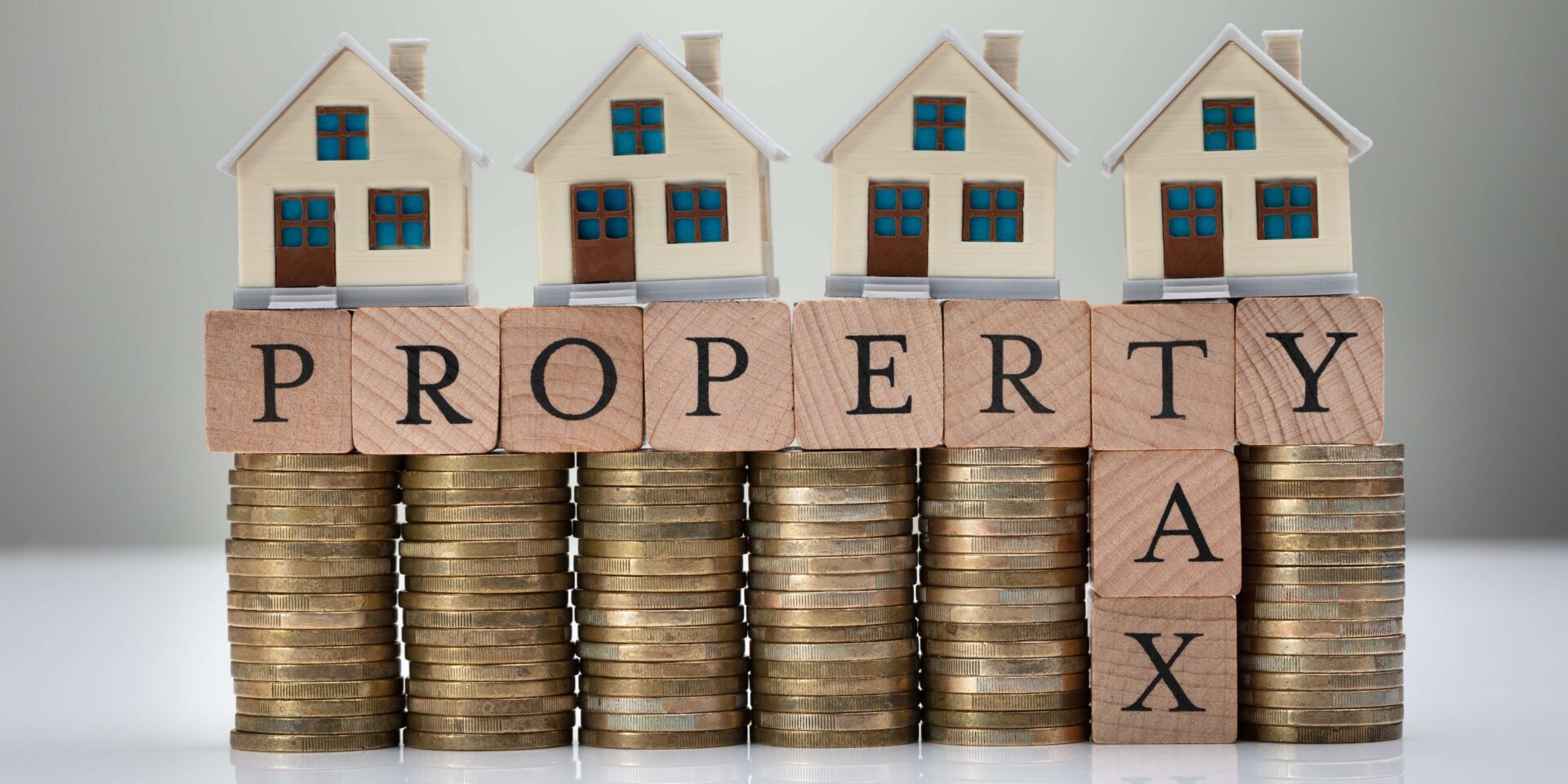Language:
Tax Benefits of Rental Property

If you are a landlord or thinking of becoming one, renting property comes with challenges. You must find tenants, maintain the property, collect rent, and pay bills. However, rental property can offer considerable financial benefits. You can make extra money while building your real estate portfolio. Plus, you could save some cash by taking advantage of the tax benefits of rental property. Discussed below are 13 of these benefits.
13 Tax Benefits of Rental Property
Landlords can deduct a handful of business-related expenses on their tax return. Key tax benefits of rental property include:
Mortgage Interest Deduction
As a landlord, you likely took out a mortgage to pay for your rental property. The mortgage interest paid on the money you borrowed is tax deductible. Beyond the interest paid on a mortgage loan, you can deduct other interest-related expenses on your property.
In the year you take out a mortgage or refinance an existing loan, you can also deduct loan origination fees and a portion of the points paid.
When refinancing for more than the outstanding balance of the existing mortgage, any interest or points paid on the excess unrelated to rental use is non-deductible.
Property Depreciation
Property depreciation is a key tax deduction when you are a landlord. You can’t take one significant deduction for real estate and improvements in the year you make them. Instead, you must depreciate the property over time. Depreciation lets you deduct a portion of these costs over the useful life of the property, which the IRS has determined to be 27.5 years.
Let’s assume you paid $275,000 for a townhome you rent out. Based on the IRS’s useful life of 27.5 years, you can deduct $10,000 in yearly expenses.
Depreciation can be a substantial deduction, but you must meet the following requirements to deduct this expense from your tax return.
- You own the property.
- The property generates income.
- There is a determinable useful life for the property.
- You plan to own the property for more than one year.
- The property wasn’t bought and sold in the same year.
Keep in mind that depreciation only applies to property. You can’t take a depreciation deduction on the value of the land.
Property Taxes
Most state and local governments charge a tax on real property, which is deductible for tax purposes. Some states charge occupancy tax and rental license fees, which are also tax deductible.
Insurance Premiums
You can deduct insurance premiums paid related to your trade or business. Deductible insurance premiums include amounts you pay for property, business interruption, and liability insurance. If you have employees, you can deduct your health insurance premiums and workers’ compensation.
You can only deduct the portion of premiums that apply to that year. If you pay insurance premiums more than one year in advance, you can only deduct these the following year.
Repair and Maintenance Costs
The general repairs you make to keep your property in good working condition are deductible when you pay for them. Fixing a broken light fixture, cutting the grass, or replacing a toilet are common repair and maintenance costs.
You depreciate improvements that add value to your property over its useful life. Replacing a roof or adding a patio are examples of improvements.
Capital Gains Tax
Rental property is a capital asset, which subjects it to different tax treatment when you sell it. If you realize a gain on your property when you sell it, the rate of tax you pay depends on how long you have owned it.
A short-term capital gain is the profits you make from selling an asset you’ve owned for less than one year. Short-term capital gains tax rates are the same as ordinary income tax rates, ranging from 10% to 37% depending on your taxable income.
You realize a long-term capital gain on the profits you earn from selling an asset you’ve owned for over a year. Based on your taxable income, long-term capital gain tax rates range from 0% to 20%.
Utility Expenses
The utility expenses you directly pay are tax deductible. You can write off the electric, water, and gas bills that you pay on your rental property.
Property Management Fees
Some landlords rely on a property manager to oversee the property, collect rent, and maintain the property. The fees you pay a property manager are tax deductible.
Advertising and Marketing Expenses
You can take a tax deduction for what you pay to advertise vacant rental property.
Travel Expenses
Some travel expenses may be deductible. The transportation expense you incur to collect rent or maintain the rental property may be deductible.
The travel costs you incur to and from the rental property from your residence are not deductible. Suppose you use your home as your principal place of business. In that case, you can deduct some of these travel expenses.
Legal and Professional Fees
The fees you pay to a lawyer or accountant directly related to your business’s operation are deductible. You can deduct what you pay an attorney to set up your limited liability company. The portion of the tax preparation fees related to your rental property’s reporting on your income tax return is also deductible.
Home Office Expenses
Suppose you use space in your residence to run your rental real estate business. In that case, you can deduct expenses incurred for your home office.
Your rental activities must qualify as a trade or business for the home office deduction to apply. In addition, you have a dedicated physical space in your home that is used exclusively and regularly as your principal place of business.
If you qualify for the home office deduction, you could write off some of your mortgage interest or rent, utilities, repairs, and real estate taxes. The deduction is typically based on the square footage of the dedicated space compared with your entire personal residence.
Other Operating Expenses
In addition to those listed above, you may pay other expenses to operate your rental property. These costs may include cleaning, equipment rental, and sales commissions.
If you have employees, you can deduct what you pay them in salary and benefits. You can also deduct your portion of employment taxes under the Federal Insurance Contributions Act.
1031 Exchange
You could be subject to capital gains tax when you sell rental property. If you swap one real estate investment with another, you can defer paying tax with a Section 1031 exchange. Section 1031 exchanges apply only to real property held for investment purposes. Under this tax rule, you sell one property and buy another for the same purpose.
Section 1031 has specific rules you must meet, including:
- You must use an intermediary to receive and hold the cash when you sell the property.
- Within 45 days after the sale, you must identify the replacement property in writing to the intermediary.
- You receive the designated property within 180 days of the sale.
Turn to doola for Help at Tax Time
Tax time is right around the corner. Having the right tax structure in place for your rental property is critical. If you need assistance setting up your LLC or filing your tax return, reach out to the professionals at doola.
FAQs
Do I have to pay taxes on rental income?
Yes, you must pay taxes on net income from rental properties. If the rental income you’ve earned is higher than your deductible expenses, you pay tax on your earned profit.
Are there any tax benefits when selling a rental property?
You can offset any rental property losses against gains when selling rental property. You could also defer capital gains on the sale of rental property with a Section 1031 exchange.
Are rental income losses tax deductible?
Rental income losses are tax-deductible to the extent they exceed rental income or passive income. You cannot deduct rental losses against ordinary income, such as salaries or self-employment income.
Can I deduct casualty losses on my rental property?
Yes, you can deduct casualty losses incurred on rental property. Any casualty loss realized on rental property gets reduced by insurance money or reimbursements received.
Can I deduct expenses for renting out a room in my primary residence?
Yes – you can deduct expenses to rent a room in your home. The portion of your home’s expenses, such as utilities and insurance, attributed to the square footage of the room you rent is deductible.
Keep reading
Start your dream business and keep it 100% compliant
Turn your dream idea into your dream business.















